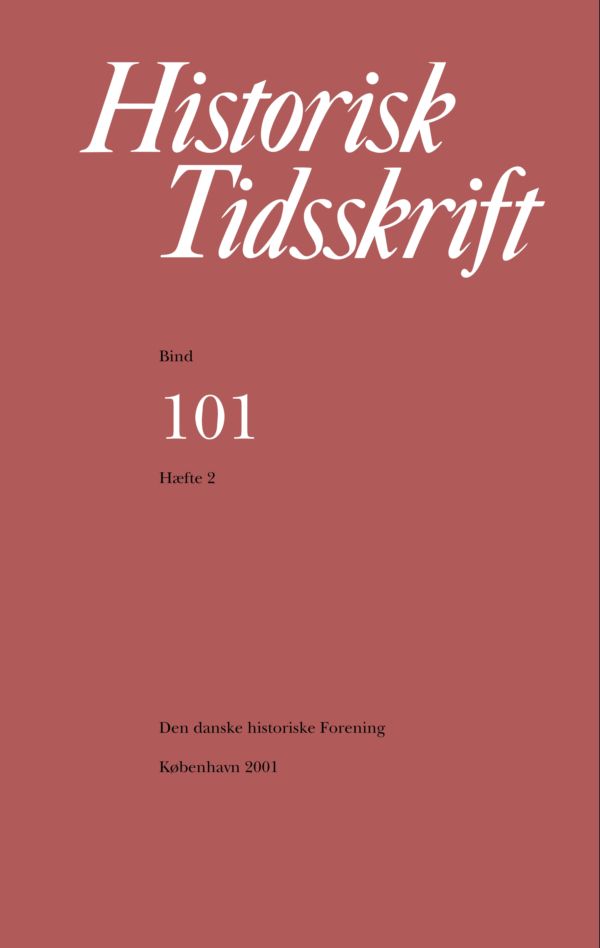»For fangens elementaire moralske opdragelse«. Rationalitet, religion og modernitet set i lyset af det moderne fængselsvæsens gennembrud
Resumé
The Prisoner's Moral Improvement: Rationality, Religion, and Modernity In the Light Of the Rise of the Modern PenitentiaryThe article deals with the breakthrough of the modern penitentiary system during a period from the last decade of the eighteenth to the middle of the nineteenth century. The new penitentiary principles gained ground first in England, then in the USA. The core concepts were extreme discipline and isolation combined with a belief that not only could crime be deterred by fear of punishment, but that criminals could and should be corrected. The new prisons were an immense success in the sense that in the course of the nineteenth century imprisonment took over the scene from previous forms of punitive justice, primarily corporal punishment and the extradition of condemned criminals to penal colonies. These developments stimulated debate in Denmark in the 1830s, and in 1840 a so-called prison commission was established, resulting in 1842 in thoroughgoing reforms, which formed the basis for the modern penitentiary system in Denmark.The present study describes the ideological concepts and the view of human nature that lay behind the creation of a modern penitentiary system on an international scale that also included Denmark. A main thesis of the study is that the principles of the system represent an interweaving of scientific and religious conceptions. On the basis of Max Weber and the sociologist of religion, Marcel Gauchet, the article therefore discusses how rationality and religion in the present context can be interpreted as naturally compatible phenomena. Furthermore, literature on the breakthrough of the modern penitentiary system is reviewed, and here Michel Foucault is criticised for assigning too little importance to religious elements in his power-technology model of explanation. The main part of the article subsequently engages in an examination of the ideas behind the modern penitentiary and the attempts to implement them. It describes how the system originated in England towards the end of the eighteenth century and then was virtually taken over by reformers in the United States, where the new institutions were perfected in the 1820s and 1830s. At this point the reformist ideas crossed back to Europe, where Denmark, too, pursued the new punitive concepts. Late in the eighteenth century reformist ideas from abroad had already found a certain resonance in Denmark, but nothing much came of it. It was not until the 1830s that Danish criticism of domestic punitive institutions became more pronounced, a criticism that clearly drew its inspiration from the United States. The prison commission that worked from 1840 to 1842 concentrated exclusively on two famous American prison systems: the Auburn and the Pennsylvania models. By way of compromise, the members of the commission chose to combine elements of both models in the new Danish penitentiary system planned in 1842. In conclusion it should be noted that the study presents the breakthrough of the modern penitentiary not merely in descriptive terms of large-scale incarceration and new forms of crime prevention, but also as part of an early phase in the rise of modern society. During that period widespread fear of change and a preoccupation with moral degeneration put new ideas about punishment, control, and education on the public agenda. One of the results was the modern penitentiary system, underpinned by a philosophy that combined scientific principles with modern religiosity.Translated by Michael WolfeDownloads
Publiceret
Citation/Eksport
Nummer
Sektion
Licens
Ophavsret til bidrag i Historisk Tidsskrift tilhører forfatterne og Den danske historiske Forening som udgiver af Historisk Tidsskrift. For illustrationer gælder den ophavsret, som står anført i billedteksten. Ophavsretslovens almindelige bestemmelser gælder, hvilket vil sige, at ophavsretten gælder i 70 år efter forfatterens død. Bidrag i Historisk Tidsskrift må derfor, med forbehold for en ”moving wall” på tre år, frit downloades, læses, gemmes, anvendes og citeres (med kildeangivelse) i privat og videnskabelig sammenhæng, men de må ikke helt eller delvis genudgives af tredjepart, heller ikke i redigeret form, uden tilladelse fra forfatterne og Den danske historiske Forening. Henvendelse skal i så fald rettes til Historisk Tidsskrifts redaktion på histtid@hum.ku.dk.





